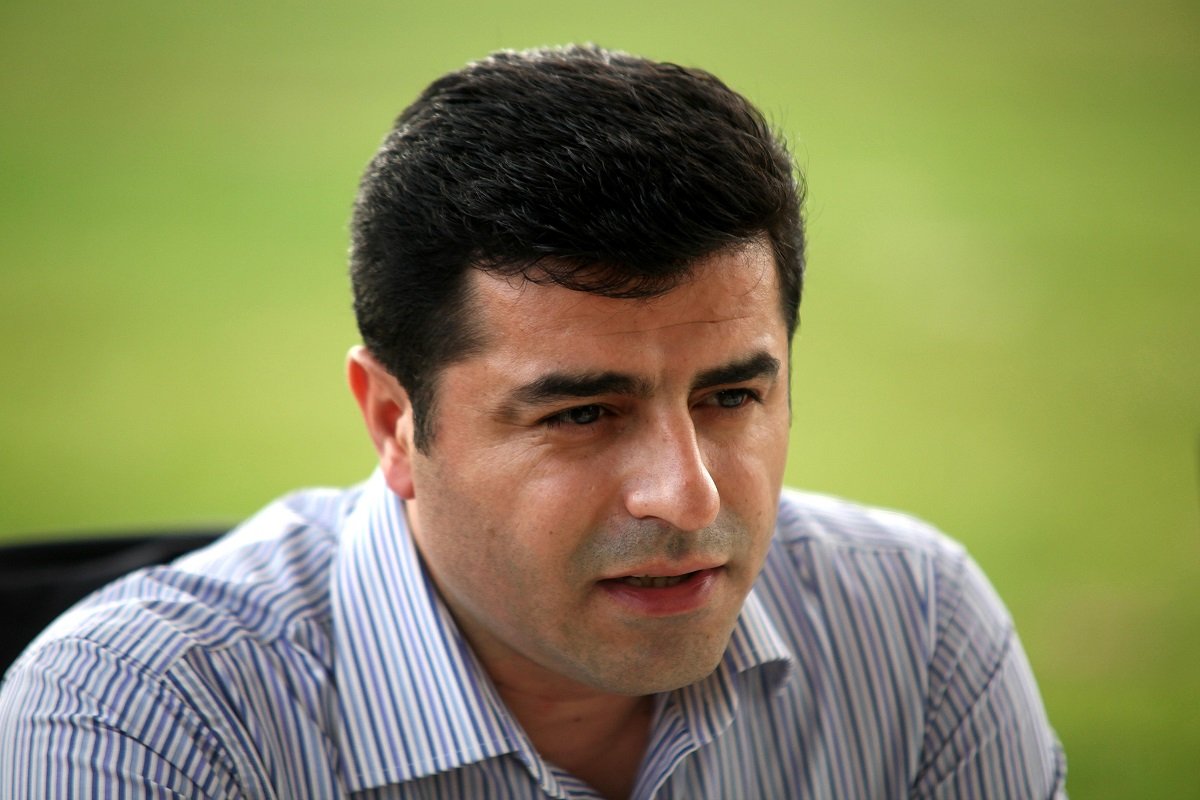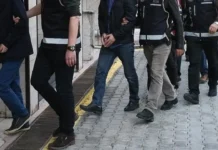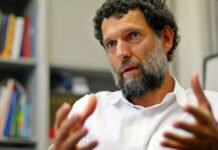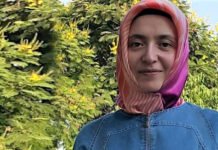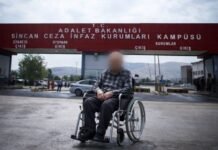A Turkish court has denied the release of jailed Kurdish politician Selahattin Demirtaş, just days after a new ruling by the European Court of Human Rights (ECtHR) found that Turkey had again violated his rights through prolonged pretrial detention, Turkish Minute reported.
The decision comes amid growing frustration over the failure of the government of President Recep Tayyip Erdoğan to take concrete steps toward political reform following the outlawed Kurdistan Workers’ Party’s (PKK) recent ceremony to mark giving up its weapons.
Demirtaş, the former co-chair of the pro-Kurdish Peoples’ Democratic Party (HDP), has been held since November 2016 on terrorism-related charges widely seen as politically motivated. The Ankara 22nd High Criminal Court rejected the latest request for his release, citing the fact that the ECtHR’s July 8 ruling has not yet become final.
In its decision, the court referred to a letter from the Justice Ministry’s Human Rights Department, which stated that the European court’s ruling “has not yet entered into force.” The same rejection applied to several other defendants in the high-profile Kobani trial, including former HDP co-chair Figen Yüksekdağ.
The ECtHR had ruled that Turkey once again violated Article 5 of the European Convention on Human Rights, which guarantees the right to liberty and security, and criticized Turkey’s Constitutional Court for taking nearly four years to process Demirtaş’s individual appeal. It was the third ECtHR decision condemning Turkey’s handling of Demirtaş’s detention.
In response, the Union of Turkish Bar Associations (TBB) urged Turkish authorities to comply with the ruling immediately, citing the binding nature of ECtHR judgments under both Article 46 of the European Convention and Article 90 of the Turkish Constitution. The TBB described the ruling as directly concerning Demirtaş’s unlawful detention and declared that “he must be released immediately.”
The rejection of Demirtaş’s release has fueled broader skepticism over the Turkish government’s sincerity in pursuing peace with its Kurdish population. Just one week earlier, on July 11, a group of 30 PKK fighters held a high-profile ceremony in Sulaymaniyah, northern Iraq, where they publicly destroyed their weapons in what was billed as the first step toward ending the group’s four-decade armed conflict against the Turkish state.
The ceremony followed a February statement from jailed PKK leader Abdullah Öcalan calling for the group to lay down its arms and a transition to democratic politics. Yet, despite widespread expectations, President Erdoğan has not responded with any meaningful steps toward reconciliation, reintegration or legal reform.
In a widely anticipated speech last Saturday — promoted by officials as a potential turning point — Erdoğan avoided mentioning Öcalan, amnesty proposals or pending legislation. Instead, he focused on offering vague rhetoric about a “new era” and a “terrorism-free Turkey.”
The pro-Kurdish Peoples’ Equality and Democracy Party (DEM Party), which has taken a leading role in facilitating the peace efforts, warned that the government’s inaction threatens the fragile momentum. “If they are going to be arrested when they come, they can’t come,” said DEM Party Co-Chair Tülay Hatimoğulları in reference to former PKK members seeking safe reintegration. She stressed the need for legal guarantees and channels of communication, including lifting restrictions on Öcalan.
Even as the government celebrates the symbolic end of armed conflict, it continues the practice of keeping key Kurdish figures like Demirtaş and Yüksekdağ in jail, raising fears that the peace process is being used for political theater without addressing the core issues of justice and political inclusion.

